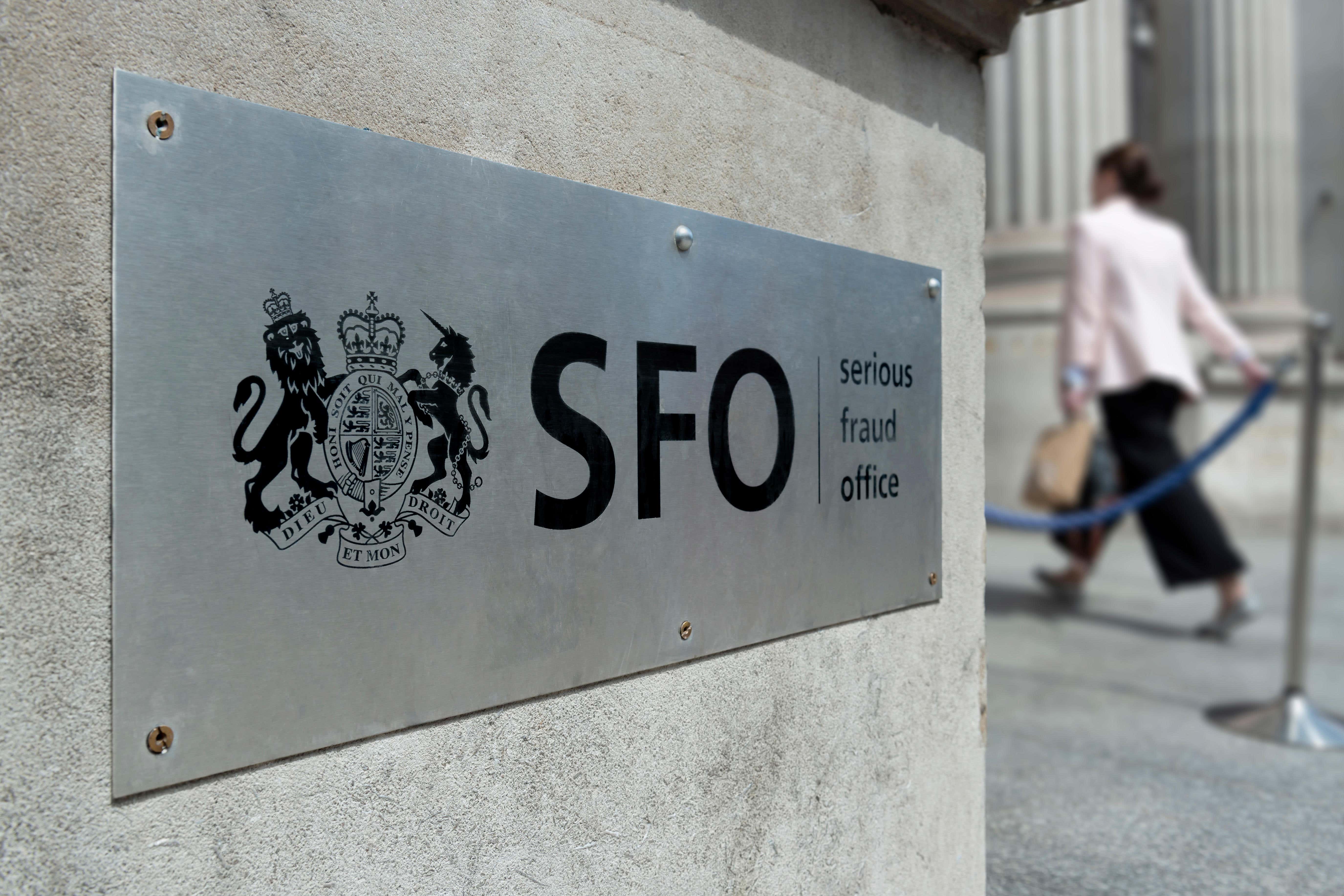G4S trial awakens memories of past failures at Serious Fraud Office
Prosecutors have regularly secured agreements to hold companies to account, but not individuals from the firms.

Comparisons have been drawn with past failures at the Serious Fraud Office as it gave up on attempts to convict three former executives at security company G4S.
The trio had been accused of making false representations to the Ministry of Justice between 2009 and 2012 over the company’s electronic tagging scandal.
G4S has already accepted responsibility and paid around £44 million to the SFO for overcharging the Government, including for tagging offenders who had died.
But on Friday the SFO’s prosecutor offered no evidence in the case against the three former executives ahead of their trial, which was meant to start in April next year.
A lawyer for one of the trio said it was not the first time one of the SFO’s major prosecutions had become unstuck.
To offer no evidence, particularly after an adjournment, smacks of a total inability to pull together a robust legal case for trial
It was a reference in part to the trial of two former bosses at Tesco, which was thrown out by a judge in 2018.
The Tesco pair had been put on trial over a £250 million hole in the company’s 2014 accounts, but the judge said there was not enough evidence that they knew income was being booked illegally.
Like in the G4S case, Tesco has signed a so-called deferred prosecution agreement with prosecutors. This allowed the company to avoid prosecution in exchange for a £129 million fine.
The deferred prosecution agreements were inspired by US law when introduced in the UK nine years ago.
For companies they offer an incentive to come clean: tell the authorities when you find wrongdoing, pay a fine and co-operate with law enforcement and you can avoid a costly trial.
The incentive for the SFO can be just as high – trials are expensive for prosecutors as well and can backfire if they cannot secure a conviction, so avoiding a trial is tempting.
But holding individuals to account after their employer signs a deferred prosecution agreement has proven less successful.
In 2021 the trial of two former Serco executives collapsed. The company had signed a nearly £23 million deferred prosecution agreement, allowing it to avoid criminal charges.
Serco had engaged in a scheme which misled the Ministry of Justice over the profits it had made from the electronic monitoring services it provided to the Government between 2010 and 2013.
But the allegations against the executives were thrown out because the SFO had failed to disclose some evidence to the defence.
Like in the G4S trial, the Serco executives criticised the agreement between their former employer and the SFO.
Iskander Fernandez, head of white-collar crime and investigations at law firm Kennedys, said: “Historically, the SFO hasn’t covered itself in glory when it comes to prosecuting individuals.
“But to offer no evidence, particularly after an adjournment, smacks of a total inability to pull together a robust legal case for trial.
“This case can now be added to the SFO’s catalogue of failings which includes its failure to successfully prosecute two Tesco executives in 2018, with the judge calling its case so weak that it could not be put to the jury.
“It was a similar tale with three Sarclad executives in 2019 and two former Serco executives in 2021.”
The high-profile failures often overshadow the SFO’s successes. So far this financial year it has held five other criminal trials and secured convictions in each.
In November, mining giant Glencore was forced to pay £281 million for bribing its way to oil in Africa. It was the largest amount a company had paid after a conviction in the UK.
The SFO also convicted two companies for bribery and corruption and secured more than £100 million in fines, penalties and other costs from three deferred prosecution agreements.
Bookmark popover
Removed from bookmarks